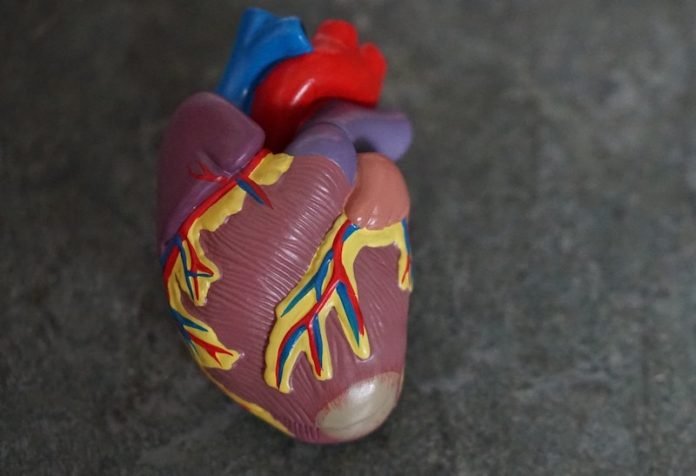
Scientists from King’s College London found a new drug, OCT2013, could prevent sudden cardiac death as effectively as drug lidocaine but without lidocaine’s severe side effects.
The research is published in the British Journal of Pharmacology and was conducted by Dr Mike Curtis et al.
Many of the 100,000 deaths from heart attacks that happen each year in the UK occur before the ambulance can arrive on the scene.
This is due to ischaemia—the heart’s muscle not receiving enough blood due to a block in a coronary artery. This can quickly lead to death from an irregular heartbeat known as ventricular fibrillation (VF).
Though previous research identified drugs that can counteract VF, their side effects meant they failed clinical trials.
Lidocaine, for example, has been shown to prevent VF, but it has effects on other parts of the heart and the nervous system.
Consequently, lidocaine is only administered via an I.V. drip within hospitals and cannot address the pre-hospital deaths associated with ischaemia-induced VF.
In the study, the team used a heart attack model in rats to test the effectiveness of the newly synthesized compound OCT2013. The new drug is a compound with a similar structure to lidocaine.
They showed that OCT2013 converts to active lidocaine in an environment with reduced oxygen—in other words, the part of the heart undergoing ischaemia.
OCT2013 itself is inactive so it has no effects elsewhere, and therefore no side effects.
The team found that OCT2013 prevented sudden cardiac death in rats, mimicking the effects of lidocaine on the electrical properties of the ischaemic parts of the heart, without mimicking the unwanted effects of lidocaine elsewhere.
Chemical analyses showed that OCT2013 was converted into lidocaine only in the parts of the heart experiencing ischaemia.
This study invented a new class of drugs that has the potential to prevent the sudden death associated with a heart attack.
The researchers hope that OCT2013 could be the basis for a new drug that can be prescribed outside of the hospital, addressing an important unmet therapeutic need.
If you care about heart attack, please read studies about a new way to treat heart attacks, and instant death from heart attack common in people who do not exercise.
For more information about heart health, please see recent studies about how to tell panic attack or heart attack, and results showing what heart and stroke patients should know about COVID-19 vaccines.
Copyright © 2022 Knowridge Science Report. All rights reserved.



